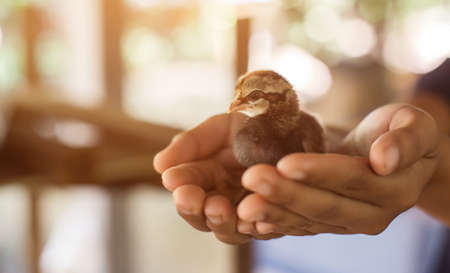1. Understanding Your Bird’s Nutritional Needs
When it comes to your bird’s health and lifespan, understanding their unique nutritional needs is essential. Birds are a diverse group of animals, and each species has its own dietary requirements based on their natural habitat and biology. For instance, parrots often need a mix of fruits, vegetables, seeds, and nuts, while finches thrive on a diet primarily composed of seeds and greens. Some birds require specific nutrients like vitamin A, calcium, or protein in higher quantities than others. Providing balanced nutrition isn’t just about offering food—its about ensuring your feathered friend receives the right blend of vitamins, minerals, proteins, carbohydrates, and fats. Without proper nutrition, birds can develop deficiencies that impact their energy levels, immune system, feather quality, and even their lifespan. By taking the time to learn about your bird’s individual dietary needs and consulting with an avian veterinarian when needed, you can give them the best chance at a long, healthy life.
Common Nutritional Mistakes in Pet Birds
Many bird owners, even with the best intentions, unknowingly make nutritional mistakes that can significantly impact their pet’s health and lifespan. Understanding these frequent errors is crucial to providing the best care for your feathered companion.
All-Seed Diets: A Widespread Issue
One of the most common mistakes is feeding birds an all-seed diet. While seeds are convenient and readily accepted by most birds, they are typically high in fat and lack essential vitamins, minerals, and amino acids. Over time, this unbalanced nutrition can lead to obesity, fatty liver disease, vitamin deficiencies, and a weakened immune system.
Feeding Human Foods: Hidden Dangers
Another prevalent error is offering table scraps or human foods to pet birds. Many human foods contain salt, sugar, preservatives, or artificial ingredients that are harmful to birds. Foods like chocolate, avocado, caffeine, and alcohol are toxic to birds and should always be avoided.
Risks Associated with Common Feeding Mistakes
| Mistake | Potential Health Risks |
|---|---|
| All-seed diet | Obesity, fatty liver disease, malnutrition |
| Feeding human foods | Toxicity, digestive upset, organ failure |
| Lack of fresh produce | Vitamin deficiency, weakened immunity |
| Over-reliance on treats | Poor dietary balance, behavioral issues |
A Balanced Approach Is Key
To avoid these common pitfalls, it’s important to educate yourself on avian nutrition and consult with an avian veterinarian for tailored advice. By steering clear of these frequent mistakes and focusing on a balanced diet, you can support your bird’s overall well-being and help ensure a longer, healthier life.

3. Building a Balanced Diet for Your Bird
When it comes to promoting a long and healthy life for your feathered companion, providing a balanced diet is essential. Unlike wild birds that forage from a variety of sources, pet birds rely entirely on their caretakers to meet their nutritional needs. A well-rounded diet not only supports immune health and vibrant plumage but also helps prevent common health problems associated with poor nutrition.
Pellets: The Foundation of Modern Bird Nutrition
High-quality formulated pellets should make up the majority of your bird’s daily intake. Pellets are specially designed to provide the right balance of vitamins, minerals, and other nutrients that birds need. Look for brands that avoid artificial colors and unnecessary fillers, as these can be harmful over time. Gradually introducing pellets into your bird’s routine can be helpful if they are used to seeds or other foods.
Fresh Fruits and Vegetables: Essential Variety
Adding fresh produce to your bird’s diet offers both nutrients and enrichment. Safe fruits like apples (without seeds), berries, bananas, and melons provide natural sugars and antioxidants. Leafy greens such as kale, spinach, and romaine lettuce contribute important vitamins and minerals. Always wash produce thoroughly and offer a diverse selection to keep your bird interested—and healthy!
Protein Sources: Supporting Growth and Vitality
While pellets often contain protein, supplementing with occasional sources like cooked eggs, beans (never raw), or small amounts of lean chicken can benefit many species, especially during molting or breeding seasons. Always consult your avian veterinarian about appropriate protein choices based on your bird’s specific breed and needs.
Clean Water: The Unsung Hero
Don’t overlook the importance of fresh, clean water! Birds require access to clean water at all times for drinking and bathing. Change water daily and ensure dishes are scrubbed regularly to prevent the buildup of bacteria or algae that can quickly lead to illness.
Customizing Your Bird’s Meal Plan
Every bird species has unique dietary requirements, so it’s important to research your specific type of bird and consult an avian vet when making significant changes to their diet. By focusing on a variety of high-quality foods—pellets, fresh produce, proteins, and clean water—you set the foundation for your bird’s long-term health and happiness.
4. The Impact of Nutrition on Lifespan and Well-being
Proper nutrition is a cornerstone of your bird’s long-term health and happiness. Just like humans, birds thrive when their dietary needs are fully met. Feeding your feathered companion a balanced diet not only supports a longer lifespan, but also ensures they remain active, alert, and playful throughout their years.
When your bird receives all the essential nutrients—vitamins, minerals, proteins, healthy fats, and carbohydrates—they build strong immune systems that help them fight off illnesses and recover from injuries more quickly. A well-nourished bird is less prone to common health problems such as obesity, fatty liver disease, vitamin deficiencies, and weakened bones.
How Proper Nutrition Affects Your Bird’s Health
| Nutritional Component | Benefits for Birds | Health Issues Prevented |
|---|---|---|
| Vitamins (A, D3, E) | Supports vision, bone growth, immune function | Deficiencies can cause poor feather quality and weak bones |
| Calcium & Minerals | Strengthens bones and eggshells; aids nerve function | Prevents egg binding and skeletal deformities |
| Proteins | Essential for muscle development and repair | Avoids stunted growth and weakened muscles |
| Healthy Fats | Provides energy; maintains shiny feathers | Reduces risk of dull plumage and energy loss |
| Fiber & Carbohydrates | Aids digestion; fuels daily activity levels | Lowers risk of digestive issues and lethargy |
The Link Between Diet and Longevity in Birds
A nutritious diet directly impacts how many happy, healthy years you will share with your pet bird. Birds fed a variety of fresh vegetables, high-quality pellets, grains, seeds (in moderation), and occasional fruits often live significantly longer than those eating a limited or imbalanced diet. By prioritizing proper nutrition every day, you help prevent many chronic conditions that can shorten your bird’s life—giving them more time to sing, play, and bring joy to your home.
5. Tips for Encouraging Healthy Eating Habits
Helping your bird develop and maintain healthy eating habits is one of the most important things you can do to support their longevity and well-being. Birds, just like people, may be hesitant to try new foods or break away from familiar routines. Here are some practical tips to make sure your feathered friend receives balanced nutrition at every stage of life:
Introduce New Foods Gradually
Sudden changes in diet can be stressful for birds. Instead, offer new fruits, vegetables, or pellets alongside their usual favorites. Start with small pieces and let your bird explore the colors and textures at their own pace. Patience is key—sometimes it takes several tries before a bird accepts a new food.
Make Mealtimes Enriching
Birds are naturally curious and enjoy foraging. Try hiding nutritious treats in foraging toys or scattering chopped veggies around their cage. This not only encourages them to eat a wider variety but also provides essential mental stimulation.
Set a Good Example
Birds are social eaters and often mimic their human companions. Enjoying fresh produce together (making sure everything you share is safe for birds) can spark their interest in healthier options.
Rotate and Diversify Their Diet
Keep mealtime exciting by offering a rotating selection of bird-safe vegetables, fruits, grains, and high-quality pellets. Different life stages—from chicks to seniors—may require specific nutrients, so consult your avian veterinarian about age-appropriate foods.
Avoid Unhealthy Temptations
Resist the urge to offer too many seeds, processed snacks, or table scraps. These foods can be high in fat or salt and do not provide the complete nutrition your bird needs for a long, healthy life.
Consult an Avian Vet Regularly
Your bird’s nutritional needs may change over time due to age, health status, or activity level. Routine check-ups with an avian veterinarian help ensure your pet’s diet remains optimal for each stage of life.
6. When to Seek Professional Nutritional Advice
Ensuring your bird receives the right nutrition is essential for a long, healthy life, but even the most diligent bird owners can sometimes miss subtle signs of nutritional imbalance. Recognizing these warning signs early and knowing when to consult an avian veterinarian can make all the difference for your feathered friend’s well-being.
Spotting Signs of Nutritional Imbalance
Your bird may not be able to tell you when something is wrong, but their body language and appearance often provide important clues. Look out for symptoms such as dull or ruffled feathers, excessive molting, changes in appetite, weight loss or gain, decreased activity, or abnormal droppings. Behavioral changes like lethargy or irritability can also indicate that your pet isn’t getting the nutrients it needs.
When It’s Time to Call the Vet
If you notice persistent symptoms or sudden changes in your bird’s health, don’t hesitate to reach out to an avian veterinarian. Birds are experts at hiding illness, so waiting too long can lead to more serious health issues. Professional guidance is especially crucial if your bird has special dietary needs, chronic conditions, or if you’re introducing new foods and want to make sure their diet remains balanced.
Tailored Dietary Recommendations
An avian vet can assess your bird’s unique needs based on its species, age, lifestyle, and medical history. They’ll recommend a personalized nutrition plan that addresses any deficiencies and helps prevent future problems. By partnering with a professional, you’ll give your bird the best chance at a vibrant and healthy life.
Remember: When it comes to proper nutrition, being proactive and seeking expert advice when needed is one of the best investments you can make in your bird’s longevity and happiness.

